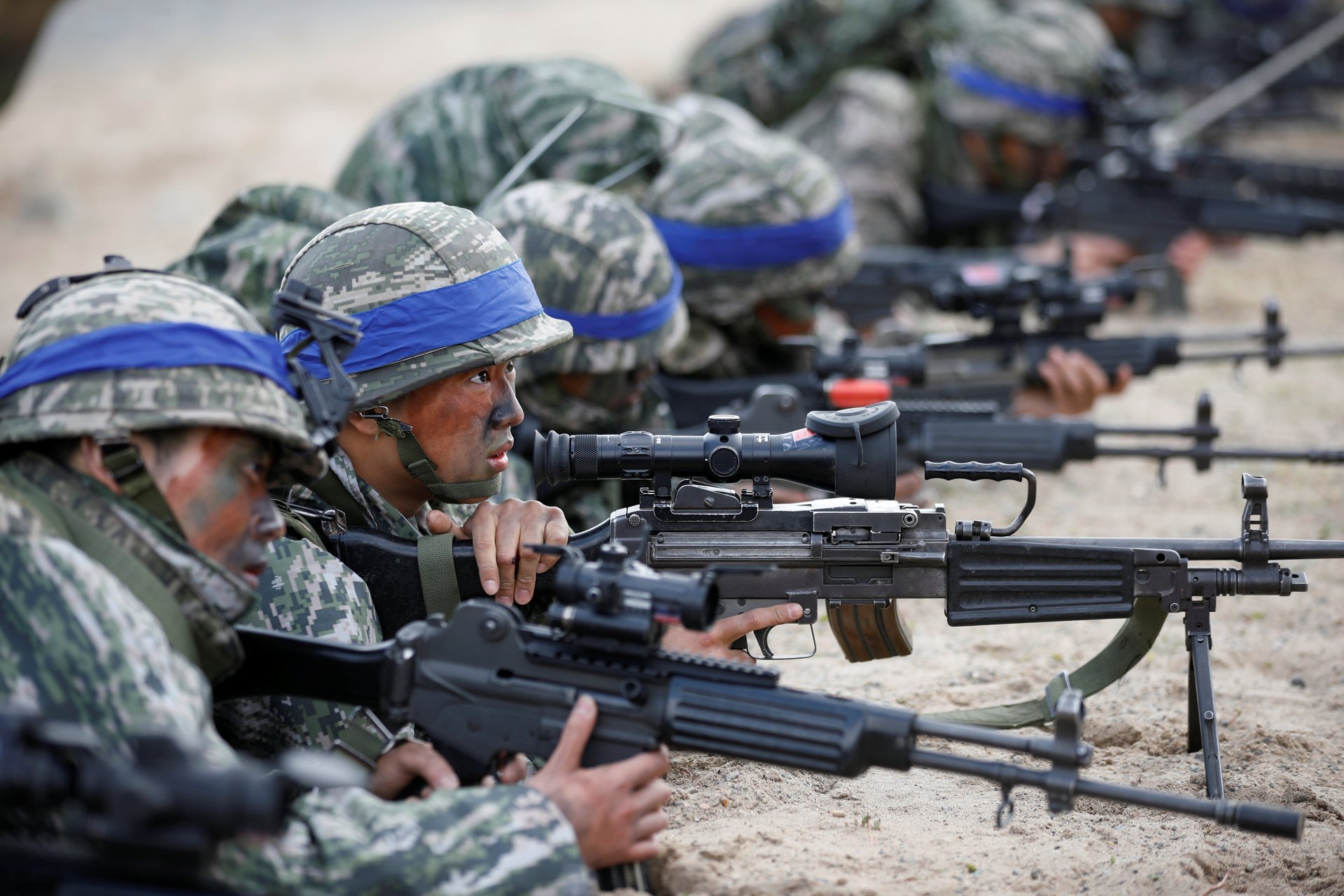A big US-South Korea military drill is being revamped to keep North Korea calm
After a landmark meeting with North Korean leader Kim Jong Un in June, Donald Trump shocked many by referring to joint military exercises with South Korea as “very provocative,” and announcing that he planned to cease them.


After a landmark meeting with North Korean leader Kim Jong Un in June, Donald Trump shocked many by referring to joint military exercises with South Korea as “very provocative,” and announcing that he planned to cease them.
That announcement saw the suspension of this year’s major drills. Now, US secretary of defense Jim Mattis has said that large-scale exercises scheduled for spring 2019, known as Foal Eagle, will be revamped with denuclearization negotiations with North Korea in mind.
“We are not canceling exercises. We are realigning one exercise,” said Mattis on Wednesday (Nov. 21), in response to a reporter’s query. “Foal Eagle is being reorganized a bit to keep it at a level that will not be harmful to diplomacy.”
Trump’s concession on military drills had been long sought by North Korea, as well as China, which had proposed the US and South Korea halt the exercises in exchange for the North’s cooperation on denuclearization.
The US and South Korea, where nearly 30,000 American troops are stationed, have done a variety of large and small drills together for decades. A Korean War-era agreement allows the US to take operational control (paywall) of the South Korean army in case of a major conflict on the peninsula. The Ulchi Freedom Guardian drill, scheduled for August, and an aerial drill called Vigilant Ace, which usually takes place in late November or early December, were among the larger war games suspended this year, though a small joint drill did take place this month. Some military experts have raised concerns about operational readiness as a result of the suspensions.
Foal Eagle usually takes place in February or March, but this year’s exercise occurred a little later than usual because of the Winter Olympics in South Korea, which was crucial to the diplomatic thaw with Pyongyang after Trump and Kim’s fiery proclamations just weeks before. At times, the drill has seen more than 10,000 US troops and nearly 300,000 South Korean troops participate.
In the wake of the June summit in Singapore between Trump and Kim, there have been a flurry of meetings between secretary of state Mike Pompeo and North Korean officials, and talk of a possible second summit early next year, but North Korea watchers have cast doubt on whether Pyongyang is really ready to engage, pointing to satellite evidence of development of military installations associated with the nuclear weapons program.
This month, North Korea threatened to resume nuclear weapons development if sanctions put on it in response to its weapons testing aren’t lifted.